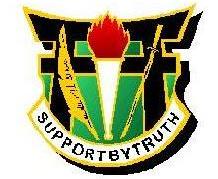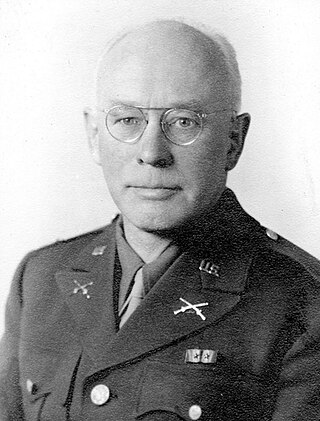Psyop may refer to:
- Psychological operations
- Psi-Ops: The Mindgate Conspiracy , 2004 video game
- Psyop (company), an advertising production company based in New York City
Psyop may refer to:
The Office of Strategic Influence, or OSI, was a department created by the United States Department of Defense on October 30, 2001, to support the War on Terrorism through psychological operations in targeted countries, which did not include the United States because the Pentagon is barred from PSYOPs in the U.S. However, BBC noted that "there is nothing to stop an American newspaper picking up a story carried abroad" in cases of news stories that were "black propaganda" with deliberately "misleading" information planted by the Pentagon under OSI.

Psychological warfare (PSYWAR), or the basic aspects of modern psychological operations (PsyOp), have been known by many other names or terms, including Military Information Support Operations (MISO), Psy Ops, political warfare, "Hearts and Minds", and propaganda. The term is used "to denote any action which is practiced mainly by psychological methods with the aim of evoking a planned psychological reaction in other people".

The Lockheed Martin EC-130 series comprises several slightly different versions of the Lockheed C-130 Hercules that have been and continue to be operated by the U.S. Air Force and, until the 1990s, the U.S. Navy.

The United States Army Special Operations Command (Airborne) (USASOC ( YOO-sə-sok)) is the command charged with overseeing the various special operations forces of the United States Army. Headquartered at Fort Liberty, North Carolina, it is the largest component of the United States Special Operations Command. It is an Army Service Component Command. Its mission is to organize, train, educate, man, equip, fund, administer, mobilize, deploy and sustain Army special operations forces to successfully conduct worldwide special operations.

The United States Army Civil Affairs and Psychological Operations Command (Airborne), USACAPOC(A), or CAPOC was founded in 1985 and is headquartered at Fort Liberty, North Carolina. USACAPOC(A) is composed mostly of U.S. Army Reserve Soldiers in units throughout the United States. The size of the Command is nearly 13,500 Soldiers, which is 76% of the Department of Defense's Civil Affairs forces and 63% of Psychological Operations forces. The current Commanding General is Major General Isaac Johnson Jr., who assumed command in August 2022.
15 Psychological Operations Group was a tri-service, or "purple", military unit formerly parented by 1 Military Intelligence Brigade but from April 2014, part of the Security Assistance Group within the British Army's Force Troops Command. Since April 2015, it has been subsumed into 77th Brigade within 6th Division.
The Information Operations Roadmap is a document commissioned by the Pentagon in 2003 and declassified in January 2006. The document was personally approved by former Secretary of Defense Donald Rumsfeld, and describes the United States Military's approach to Information operations, with an emphasis on the Internet.
The Joint United States Public Affairs Office (JUSPAO) was a multi-agency organization that provided integrated Information Operations support in South Vietnam from 1965 to 1972. Involving military, US Information Agency and State Department efforts, JUSPAO provided direction for a range of public affairs, public diplomacy and psychological operations.

Psychological operations (PSYOP) are operations to convey selected information and indicators to audiences to influence their motives and objective reasoning, and ultimately the behavior of governments, organizations, groups, and large foreign powers.
The 13th Psychological Operations Battalion (originally, the 13th Psychological Warfare Battalion (Enemy Prisoner of War)) is a Battalion in the United States Army Reserve.

The 4th Psychological Operations Group (Airborne) (or 4th POG)(A) is one of the United States Army's active military information support operations units along with the 8th Psychological Operations Group (Airborne), which was activated 26 August 2011 at Fort Liberty. The 8th Group has responsibility for the 3rd and 9th Psychological Operations battalions while the 4th Group has responsibility for the 1st, 5th, 6th, 7th, and 8th battalions.

The 7th Psychological Operations Group is a psychological operations (PSYOP) unit of the United States Army Reserve. Organized in 1965, it was a successor to United States Army Broadcasting and Visual Activity, Pacific. It is currently based at Moffett Field, California.

The 2nd Psychological Operations Group is a psychological operations (PSYOP) unit of the United States Army Reserve.
The Peace Support Training Centre, is at McNaughton Barracks, CFB Kingston, Ontario, Canada, and is a subordinate unit of the Canadian Army Doctrine and Training Centre. PSTC delivers training to the Canadian Armed Forces (CAF), other Canadian government departments (OGDs), and foreign militaries. PSTC is also engaged in instructor exchanges with ABCA, NATO, and other countries.

The Special Operations Command Central (SOCCENT) is a sub-unified command of the U.S. Central Command (CENTCOM). It is responsible for planning special operations throughout the CENTCOM area of responsibility (AOR), planning and conducting peacetime joint/combined special operations training exercises, and orchestrating command and control of peacetime and wartime special operations as directed.

The 8th Psychological Operations Group (Airborne) or 8th POG(A) is one of the United States Army's active Psychological Operations units alongside the 4th Psychological Operations Group (Airborne). The unit was activated August 26, 2011. The activation ceremony was held on Meadows Field at the U.S. Army Special Operations Command headquarters. Lt. Gen. John F. Mulholland, Jr., served as a host. The 8th Group assumed responsibility for the 1st, 5th and 9th Psychological Operations battalions. The unit is based at Fort Liberty, North Carolina and is a part of the 1st Special Forces Command (Airborne).

Psyop is a production studio with offices in New York City, Los Angeles, Berlin and Stuttgart.
Information Operations is a category of direct and indirect support operations for the United States Military. By definition in Joint Publication 3-13, "IO are described as the integrated employment of electronic warfare (EW), computer network operations (CNO), psychological operations (PSYOP), military deception (MILDEC), and operations security (OPSEC), in concert with specified supporting and related capabilities, to influence, disrupt, corrupt or usurp adversarial human and automated decision making while protecting our own." Information Operations (IO) are actions taken to affect adversary information and information systems while defending one's own information and information systems. In the United States Navy, information operations are often supervised by a Navy Information Operations Command (NIOC), for example in the United States Tenth Fleet which has several NIOCs.

Heber Blankenhorn was a 20th-Century American journalist, psychological warfare innovator, and union activist who served on the National Labor Relations Board and recognized decades later by the U.S. Army as both Distinguished Member of the PSYOP Regiment (DMOR) and original "Silver Knight" for his service during both world wars in the "Psychological Operations Regiment."
Abu Ali Express is an influential Israeli channel which covers Arab affairs on social media, including Telegram and Twitter, as well as on its own website. In spite of its Arabic pseudonym, the page was created by Israeli citizen Gilad Cohen, who in 2018, about two years after the creation of the channel, Cohen was hired by the Israeli Defense Forces (IDF) to run the channel as a psychological warfare tool. After Israeli newspaper Haaretz revealed that the channel operator was working for the IDF, the publication of Cohen's name was initially banned by a censorship decision of Israel's military justice, on the grounds that Cohen had access to sensitive information and performed a sensitive role. A few weeks later, however, the IDF changed its position, claiming that Cohen had never been exposed to any classified information, and the censorship on his name was lifted.